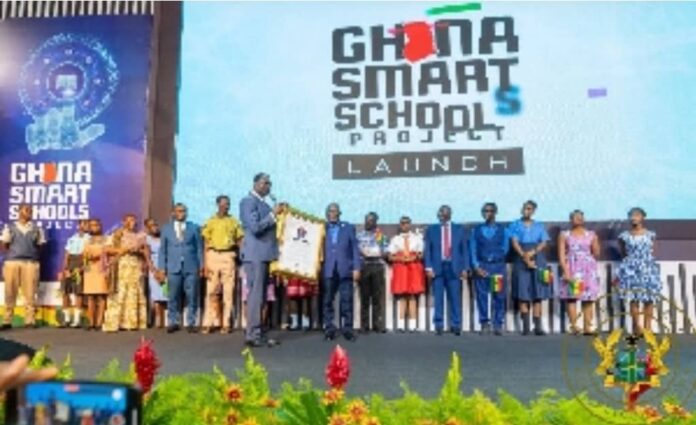In a recent interview, the Public Relations Officer for the Ministry of Education, Kwasi Kwarteng, disclosed that under the Ghana Smart School Project initiative, Senior High School students will have the liberty to take their tablets home to use for educational activities.
This move, he says aims to foster a consistent learning environment for SHS students throughout their three-year academic journey.
Speaking to Nana Yaa Brefo and JB on Yen Nsempa on Onua FM Tuesday, March 26, 2024, he disclosed that upon completion of their Senior High School education, students will however be required to return the tablets to the school.
This policy, he says, ensures that incoming students can benefit from the educational content stored on the devices. Kwarteng clarified that the educational content on the tablets becomes irrelevant post-graduation, necessitating their return to the school for redistribution.
“The students can take the tablets home while they also use them in the school and classrooms because the whole idea is to create a consistent learning environment.
“However, after the completion of Senior High School, the content will no longer be relevant to the students, hence after school, the students will have to return the tablet to the school so that the next batch of students can benefit from the tablet and its educational content,” he explained.
The tablets have been equipped with a Learning Management System, that offers a virtual classroom experience allowing students to access educational videos, interact with peers from other schools, and access a repository of learning materials, which seamlessly integrate into both home and classroom settings, facilitating uninterrupted learning.
“We have installed a Learning Management System on the tablet, it’s a virtual classroom, the students can go there anytime to watch educational videos and interact with other schools and their learning materials, the recordings are all there,” he said.
Addressing concerns regarding electricity instability, Kwarteng assured stakeholders that the tablets are designed to mitigate such challenges.
He highlighted the tablets’ dual charging capabilities, supporting both electrical and solar power sources. This innovative feature not only enhances the accessibility of the tablets but also aligns with broader efforts to leverage renewable energy sources.
“The government and its leadership have meticulously considered various factors, including electricity instability, the charging system of the tablet has solar power attached to it so aside from the ability to use electricity to charge it, the students can use the power of the sun as well,” remarked Kwarteng.
The Ghana Smart School Project aims to equip students benefiting from the free SHS policy with crucial technological skills, aligning with the government’s commitment to leveraging technology to advance education.
By Lois Dogbe|Onua FM












